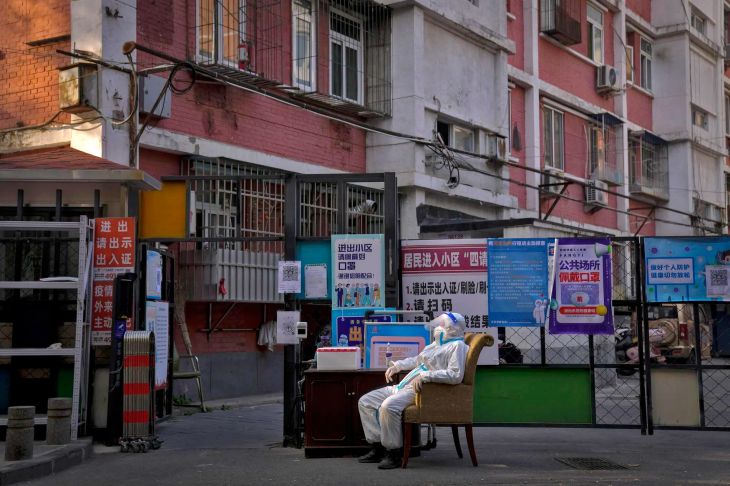During the U.S. presidential campaign in 1992, Democratic party strategist James Carville identified the campaign’s key overriding communications objective: “it’s the economy, stupid”.
After losing three presidential elections to Republicans by advocating left of center ideological positions, Carville proposed an approach that would appeal to a majority of Americans – a centrist approach based on pragmatism rather then ideology.
The result was a two-term presidency for President Bill Clinton – who governed from the center and created a strong economy capable of providing a sound infrastructure while elevating millions of poor Americans out of poverty and to a better place.
Life is a process of constant change. Politics must reflect the changes in the needs and aspirations of voters as well as the realities that affect a country’s development and the direction of its growth.
A pragmatic approach to politics allows a government to adapt to change and offer new and innovative alternatives to address successfully the challenges facing its society and maintain the strength of its institutions.
We see this today as we witness the violent demonstrations on China and Iran that are leading to a major shift in perceptions of governance: the realization that authoritarian and autocratic states simply cannot match liberal democratic ones in their ability to adapt with respect to changes in global realities and an evolving environment.
China was pulled out of extreme poverty and thrust into global pre-eminence not by the founding Marxist ideology of Mao Zedong but by the pragmatic approach of Deng Xiaoping in the 1980’s. Famous for his observation that “it doesn’t matter of a cat is black or white, as long as it catches mice”, he opened China up to a certain degree of capitalism and freedom, allowing the people to innovate and break out of the cycles of poverty that had plagued China throughout its history.
Fast forward to President Xi Jinping. He is reverting to an ideologically based economy and society, reversing the political and economic liberalizing trends begun by Deng Xiaoping, assuming full power and eliminating threats to his personal leadership.
An embrace of an ideology that has proven to be a resounding failure everywhere it has been tried. The result – major violent demonstrations across the country protesting the government’s heavy-handed implementation of its “zero Covid” policy and the idea that the economy should be more restricted in order for the Marxist model to once again assume paramountcy.
Xi is no longer connecting with the average Chinese citizen (if he ever did), and, even if he reduces the ferocity of his repressive vision, the stage is set for a showdown for the limited liberalism of the past forty years and the dictatorship he proposes.
The situation in Iran is similar.
The country has alternated between “liberal” Presidents (liberal in the Iranian sense) like Rafsanjani and Khatami and the ultra-conservative regimes of Ahmadinejad and the current President Raisi.
While the demonstrations began with women protesting the killing of Mahsa Amini, it soon expanded to include almost all sectors of society. Protestors appear to be focused not only on changing dress laws for women but also on changing the fundamentalist Islamic nature of the regime to bring Iran into the mainstream of 21st century societies.
Once again, the reversal to a vicious ideological approach to governance backed by violent repression appears to be having the opposing results of those desired by the Islamist ruling class.
Iranian youth are frustrated. Many are highly educated and sophisticated and observe how Western youth live. They want the same life and hope for themselves. The powerful Bazaaris (the Iranian merchant class) have also joined the fight. One should always keep in mind that the Shah lost his regime when the Bazaaris joined the revolution, and that this may well be replicated again.
The main lesson we must all learn is that governments run according to strict ideological lines can never modify their direction to meet domestic or global challenges. Ideology is the opposite of what is needed to govern effectively: an ability to listen to different points of view and adopt the most pragmatic and effective.
Absent this, autocratic regimes will always lack the fundamental condition that gives liberal democracy its strength, whereas liberal democracies will always be better placed to implement the longer-term strategic policies required to create a strong economic and social base that meets the needs and aspirations of its populace.
It is essential for leaders to remember that It’s always the economy, stupid, and to always listen to the needs and aspirations of their citizens regardless of their own beliefs or ideologies.
Keep reading: The Ball and the Globe
Edición: Laura Espejo
La Habana señala que la embarcación no obedeció la orden de alto tras ingresar a sus aguas territoriales
La Jornada
Ocupa actualmente el primer lugar nacional en crecimiento migratorio
Ana Ramírez
Se realizaron dos operativos simultáneos en el Área Natural Protegida
La Jornada Maya
Los fondos serán entregados a socios "de confianza" a través de la ONU para que ''lleguen directamente al pueblo".
Dpa
